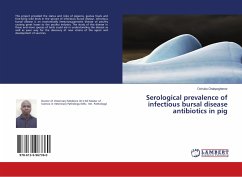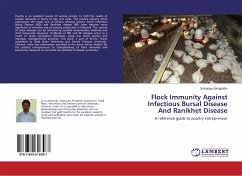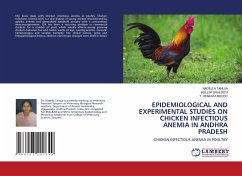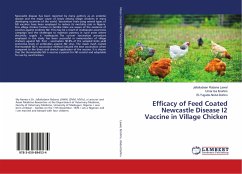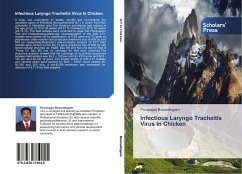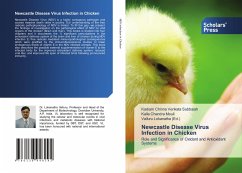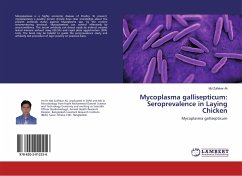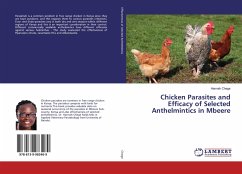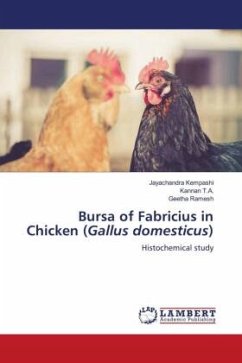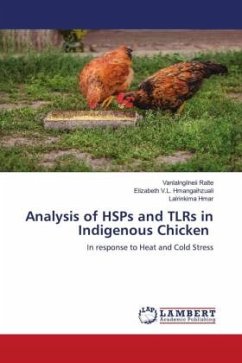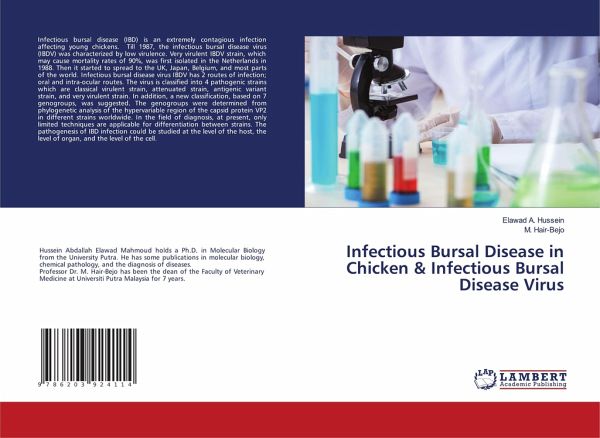
Infectious Bursal Disease in Chicken & Infectious Bursal Disease Virus
Versandkostenfrei!
Versandfertig in 6-10 Tagen
27,99 €
inkl. MwSt.

PAYBACK Punkte
14 °P sammeln!
Infectious bursal disease (IBD) is an extremely contagious infection affecting young chickens. Till 1987, the infectious bursal disease virus (IBDV) was characterized by low virulence. Very virulent IBDV strain, which may cause mortality rates of 90%, was first isolated in the Netherlands in 1988. Then it started to spread to the UK, Japan, Belgium, and most parts of the world. Infectious bursal disease virus IBDV has 2 routes of infection; oral and intra-ocular routes. The virus is classified into 4 pathogenic strains which are classical virulent strain, attenuated strain, antigenic variant s...
Infectious bursal disease (IBD) is an extremely contagious infection affecting young chickens. Till 1987, the infectious bursal disease virus (IBDV) was characterized by low virulence. Very virulent IBDV strain, which may cause mortality rates of 90%, was first isolated in the Netherlands in 1988. Then it started to spread to the UK, Japan, Belgium, and most parts of the world. Infectious bursal disease virus IBDV has 2 routes of infection; oral and intra-ocular routes. The virus is classified into 4 pathogenic strains which are classical virulent strain, attenuated strain, antigenic variant strain, and very virulent strain. In addition, a new classification, based on 7 genogroups, was suggested. The genogroups were determined from phylogenetic analysis of the hypervariable region of the capsid protein VP2 in different strains worldwide. In the field of diagnosis, at present, only limited techniques are applicable for differentiation between strains. The pathogenesis of IBD infection could be studied at the level of the host, the level of organ, and the level of the cell.



